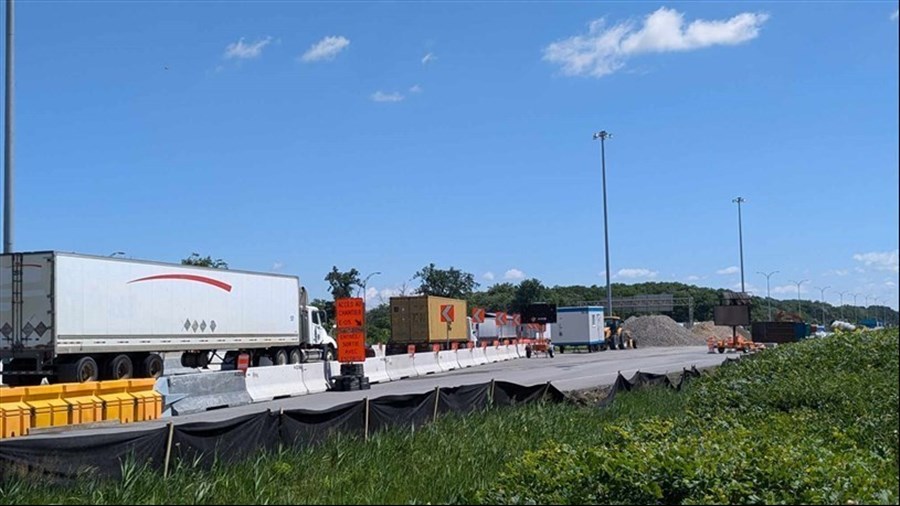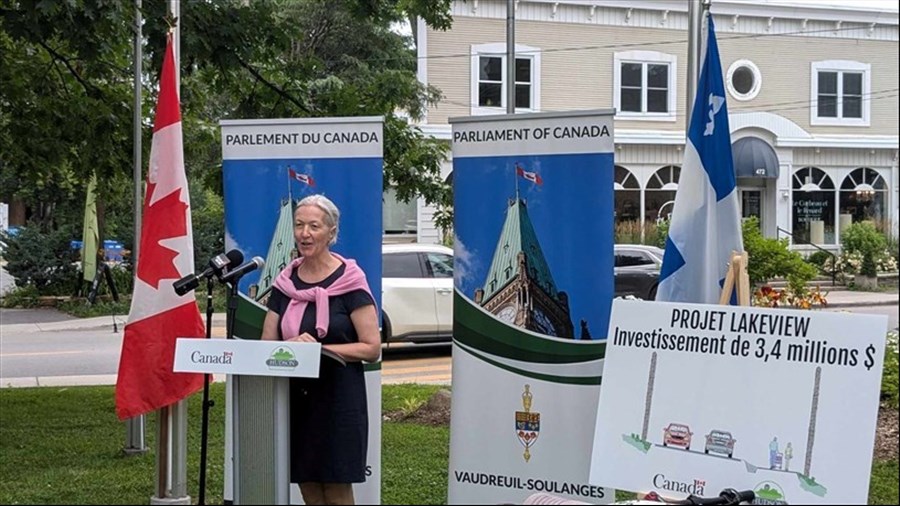Among the prefects and elected officials of the South Crown
Bill 61: questions about financing and regional planning
The members of the Table des préfets et élus de la Couronne-Sud (TPECS) have unanimously adopted a resolution affirming their position on Bill 61, tabled by the Minister of Transport and Sustainable Mobility, Geneviève Guilbault.
This body represents 11 municipalities in Vaudreuil-Soulanges, namely: Hudson, L'Île-Cadieux, L'Île-Perrpt, Les Cèdres, Notre-Dame-de-l'Île-Perrot, Pincourt, Pointe-des-Cascades, Saint-Lazare, Terrasse-Vaudreuil, Vaudreuil-Dorion and Vaudreuil-sur-le-Lac.
For those not interested in politics, this bill proposes the creation of Mobilité Infra Québec and amends several provisions relating to public transport. It has been positively received by the municipalities of the Southern Crown. However, they have major concerns about project financing and the impact on land use planning.
Although Bill 61 is seen as a step forward in terms of mobility, municipalities in the Southern Crown fear the impact of complex new public transit projects on the already extremely problematic financial framework if sustainable sources of funding are not agreed.
“It is essential that municipalities continue to have a say in projects that directly influence their territories and the lives of their citizens. In its current form, Bill 61 risks not only weighing down the governance of public transit, but also increasing the financial burden on municipalities, by disconnecting decisions from local realities, which could compromise the effectiveness and relevance of projects,” said Christian Ouellette, President of the Table des préfets et élus de la Couronne-Sud, Reeve of the Roussillon RCM and Mayor of the City of Delson.
For his part, Pierre Séguin, mayor of L'Île-Perrot and deputy prefect of the Vaudreuil-Soulanges RCM, promises to keep a close eye on Bill 61.
“Indeed, we are in agreement with Bill 61, and as mentioned in the TPECS resolution, we are asking for more local autonomy in decisions concerning local services and financing. We continue to monitor this bill closely.”
Support for Exo's recommendations and TPECS requests
TPECS strongly supports the five recommendations made in Exo's submission to the Bill 61 consultations. These recommendations are aimed at removing certain legislative constraints to improve Exo's efficiency. We believe it is essential to continue working to increase the efficiency of public transit organizations.
In addition, TPECS is putting forward two key demands that were included in the resolution adopted:
Negotiation of financial agreements: Municipalities ask that any financial contribution obligation imposed on municipalities for complex transportation projects be withdrawn, unless a negotiated agreement is reached, in order to preserve their budgetary autonomy.
Respect for municipal jurisdictions: Mobilité Infra Québec must be subject to municipal bylaws to ensure that municipalities retain their decision-making role in land-use planning, particularly with regard to projects with significant impacts on their urban development.
Preserving municipal autonomy in public transport
TPECS also supports Exo's proposal to pursue the overall evolution of metropolitan governance in order to give municipalities a greater role in local public transit provision. It is essential that decisions on local services are in line with the realities and priorities of the municipalities that are directly impacted. This approach would also make it possible to streamline governance in the interests of efficiency.
“The elected representatives of the Southern Crown are united in ensuring that public transit decisions reflect the needs and priorities of the citizens we represent. We are determined to defend municipal autonomy and ensure that transportation projects are carried out within our local jurisdictions,” added Christian Ouellette.








Pour partager votre opinion vous devez être connecté.